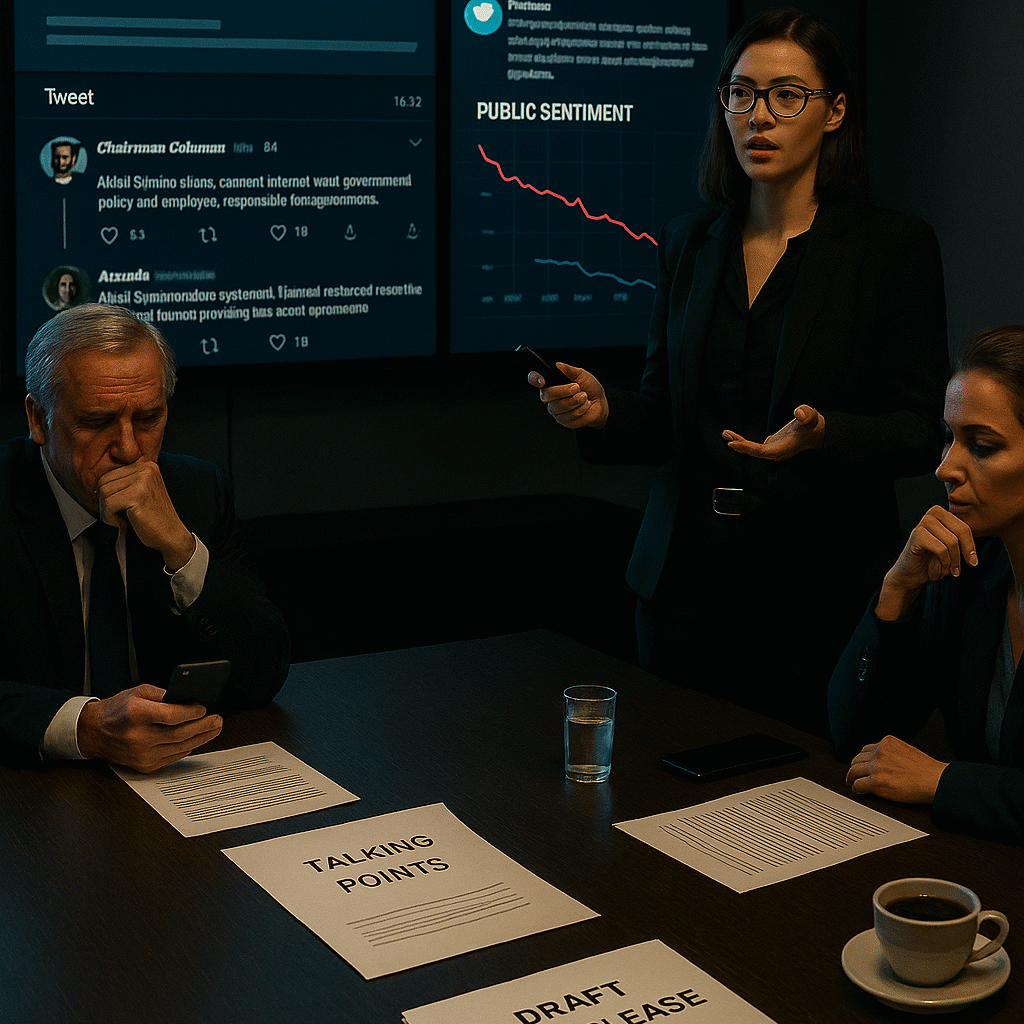In today’s increasingly complex social climate, even routine public statements from your business can be interpreted through a political lens. Whether you’re commenting on a major issue or simply sharing company values, there’s always a chance of pushback. That’s why managing political risk in your messaging is essential.
More than ever, consumers, employees, investors, and the media are paying attention not just to what your company says, but what it doesn’t say. A single comment—or lack of one—can go viral, attract unwanted attention, or spark a backlash. With growing demand for corporate accountability, business leaders are expected to engage on important societal issues. But doing so without a thoughtful strategy can be risky. That’s where preparation and careful messaging come into play.
Here’s a straightforward guide to help leaders strike the right balance between honesty and strategy:
1. Know What You’re Up Against
Political risk means the chance your message could be misunderstood, criticized, or tied to a controversial issue. Start by understanding what topics could affect your business or matter to your customers, employees, and investors. From laws and social movements to public opinion, staying informed helps you make smarter choices.
2. Decide What You Stand For
You don’t need to weigh in on every issue. But some topics—like workplace culture, community engagement, or ethical business practices—might reflect on your company’s core values. Decide early on which topics are worth speaking up about and which ones you’ll avoid. Having clear guidelines helps your team stay focused and avoid impulsive decisions.
3. Think Ahead
Before you post, publish, or go public with a message that touches on a sensitive issue, take a moment to consider how people might respond. What if it goes viral? What if it’s misunderstood? Planning ahead allows you to prepare for the unexpected and protect your brand’s reputation.
4. Speak to Shared Values
If you do need to address an issue, don’t focus on sides or blame. Instead, connect your message to values most people can agree on—like fairness, safety, or progress. This approach helps build trust and keeps your message focused on what matters most to your audience.
5. Work with Experts
These situations are tricky. A trusted public relations partner can help you craft clear, thoughtful messages and avoid common pitfalls. They can also guide you through challenges and make sure your communication supports your broader business goals.
Case Study: The Bud Light Backlash
In 2023, Bud Light worked with a transgender social media influencer on a small promotional campaign. What seemed like a simple collaboration quickly turned into a national debate. Some customers called for boycotts, while others criticized the company for not standing behind its decision. The result? A sharp drop in sales and a significant hit to the company’s reputation and bottom line.
This example shows how important it is to think through public messaging carefully. The issue wasn’t just the campaign itself—it was also how the company responded when the controversy grew. If your brand chooses to speak up on sensitive issues, it’s important to be consistent, clear about your values, and ready to handle different kinds of reactions.
Partner with PR Experts
Being silent can sometimes do more harm than good—but speaking up without a plan can too. With a clear strategy and expert PR support, your business can communicate with confidence and care, even in uncertain times.
Schedule a Meeting Today


